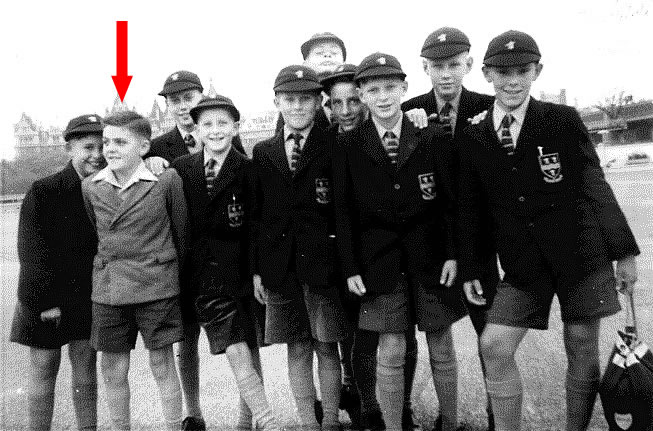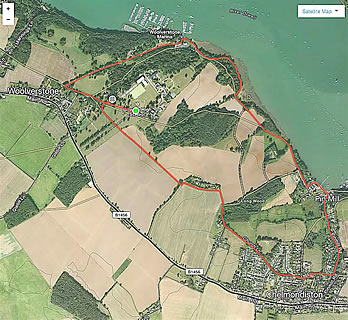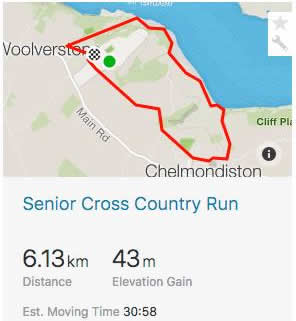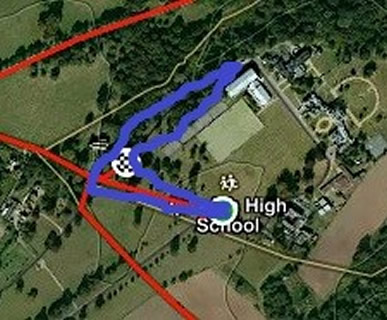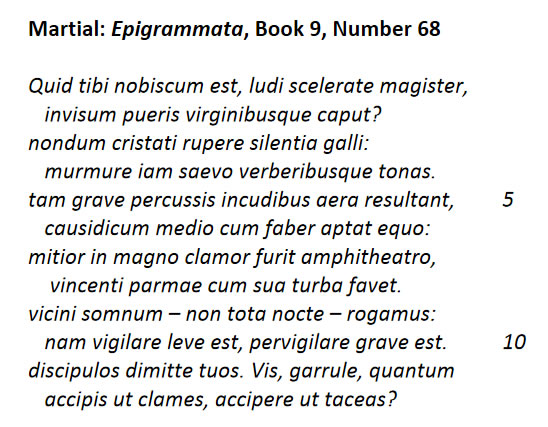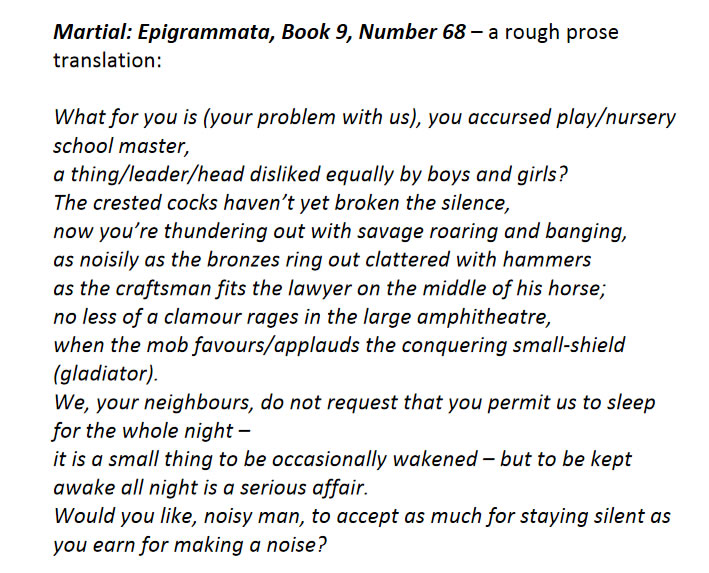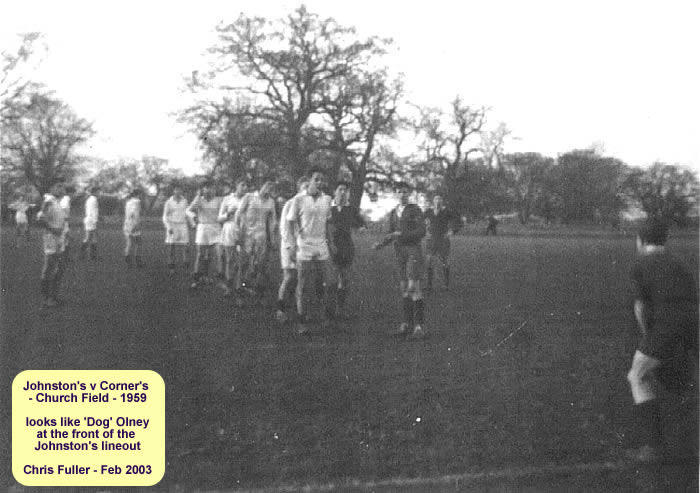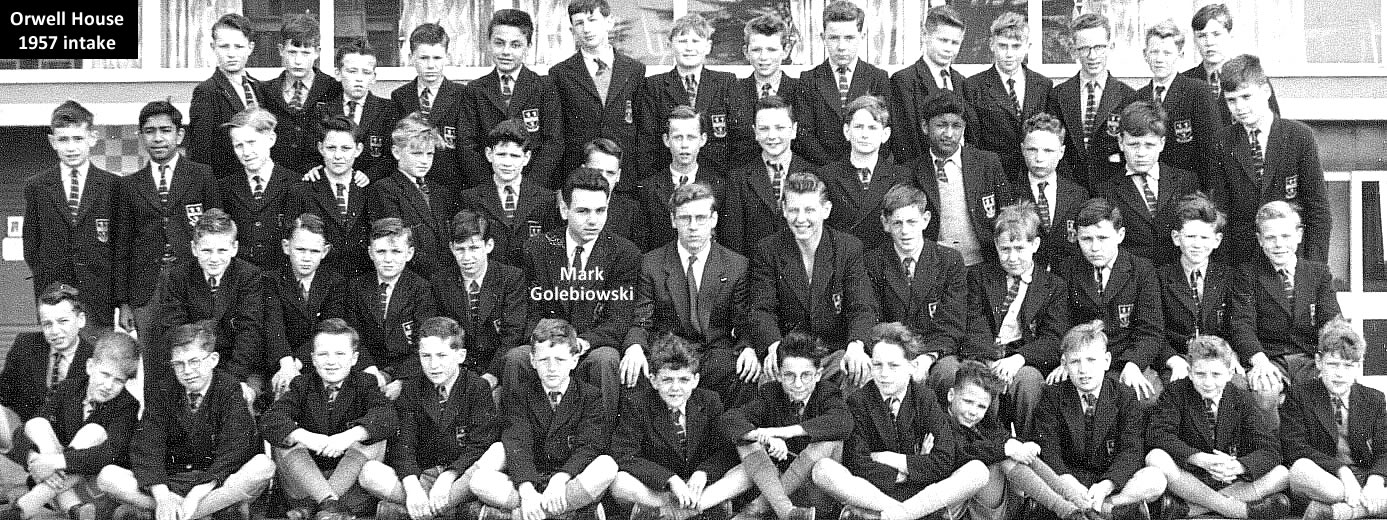The four words that changed my life: uttered in 1957 by Miss Gumbleton - headmistress of Brunswick Park Primary School in Camberwell - to my parents, then struggling with the problem of where to send me to school next.
Miraculously, I had passed the 11+, at least it seemed to my father a miracle. I don't think he ever really knew me: he certainly spent little time with me. I never rememebr him reading me bedside stories, one of the most important things one does with one's kid. He was kind enough - and never mistreated me - but our relationship was never warm and close. He had had little encouragement from his somewhat Victorian father, and had left school at 14 (very common in those days). None of his family had ever gone to grammar school, and I suppose he just assumed that I wouldn't either. I remember quite clearly telling him I had passed in the car as he drove me home from one of my last days at Brunswick Park.
We had just moved from Camberwell to West Norwood, which was in truth a considerable step up in terms of environment and housing, and it wasn't very easy to get home from Camberwell. Dad was just driving up the High Street in West Norwood (I have no idea why I waited so long on this 15 minutes car journey to tell him, NOR why parents in those days weren't informed by letter themselves; perhaps they were, but it hadn't arrived - in any case, the teachers had told us in school.) When I simply said: "By the way, I passed the 11+", he was so surprised that he turned round to look at me, the car did a mini swerve and he said: "WHAT?" And so I had to say it again.
Of course they hadn't heard of Woolverstone; I doubt whether many parents had, but Miss Gumbleton had. I suppose that County Hall was promoting the relatively new school and had sent out information to all primary schools. After all, kids like me were one of the target group for WHS: bright kids from very ordinary families living in grubby London backstreets.
Well, my parents weren't getting on too well and Miss Gumbleton did a good job of selling the school, and the upshot was that I went to WHS instead of Wilson's Grammar School between Peckham and Camberwell. That was no doubt a good school in its way, but as we know, WHS was rather different.
Four words ........... I have never talked to my mother about the decision to send me to WHS. I am pretty sure she was severely conflicted between on the one hand taking what seemed like an amazing opportunity and on the other being without me for most of the year, and Father's emotional distance with me was the exact opposite of my mother's - of that I am quite certain.
Four words .... and some ten years later, it was FIVE words uttered by Patrick Hutton that changed everything. I left WHS at the end of the 1st Year Sixth form and went to Emanuel School in Wandsworth. This change was so galactic that I didn't do well in enough in my "A" Levels at the end of the following year to get into university. I had always assumed I WOULD go to university; at WHS it had always seemed likely and logical; it was what the school expected and encouraged - but I had failed. I think my father assumed I had reached the peak of my potential and suggested I should get a job. I didn't know what to do. And then - I forget how it happened - I got in touch with Patrick Hutton, who had left WHS by then and was living in Barnes. He invited me to dinner one evening, and of course we chatted about WHS and my future. And he said: "You should go to university."
I had huge respect for Patrick Hutton, having had him for English in the VIth form. He was an absolutely delightful man: genuine, erudite, empathetic, considerate - and with a sense of humour. What he said had a huge impact on me, so much so that I knew I would do all I could to get back on course. I told my father - who disagreed, but to be fair didn't make too much of a fuss - and I started correspondence courses in German and English. The memories of that year are hazy, but I do remember working at home a lot and also as a general dogsbody in Bentalls of Kingston. I used to turn up in the mornings and they would send me wherever they needed a body: the laundry, the warehouse, to the cleaning and maintenance departments. It was a strange and somewhat stressful year, and at the end of it I went to Belsize Park to sit the exams at an open centre.
Well, I got "B"s in both English and German, and then into the UKC on a waiting list ..... And I had Patrick to thank. I am pretty sure I would never have done this without his encouragement: I seem to remember that I had convinced myself that I was a failure, that this was my fate and that I should look for some kind of job. I lost touch with Patrick after that and never thanked him properly.
I have been thinking recently about people I have met over a long teaching career. There we have been many nice (Derek T HATED us using that word!) colleagues I have worked closely and got on well with, but the number of those I feel really had something special; real qualities of the Human Spirit, of kindness, generosity, concern for others - is pretty limited. And the funny thing is that my personal list of such people is dominated by WHS teachers. It could be rose-tinted glasses of course - and one is always particularly affected by one's experiences
when young - but their example inspired me. I won't give a list, but those who knew them will know who they were. It seems to me that at WHS there was an extraordinary coming together of really great teachers and people - for whatever reason. And in this we were lucky - and for it eternally grateful.
FOOTNOTE: Thinking back, I have realized one thing: leaving aside the not inconsiderable elements of love, sex, marriage and children, my first two years at WHS were the happiest of my life. It was all so intense and exciting: so many new faces, new surroundings, a new part of England I had never been to: the river, the woods, the fields, the local village. But above all, I loved class. It was hugely enjoyable learning things about such an incredible world. I especially loved science. I can't remember if we had separate biology and physics lessons in the first two yeas. I think so, but a doubt has crept in. Anyway, I remember the physics lessons with Fred Mudd especially, because science at primary school was a bit tame in comparison. At WHS we had REAL apparatus, and most of the lessons involved experiments as far as I remember - and when we didn't do experiments we were writing up notes of the experiments we had done. We played with bunsen burners, electrical apparatus, test tubes, dye strips and all manner of stuff. And I knew even at 11 that we were being taught things about the natural world that many of the great philosophers and most learned humans of the time did not know about. What a privilege, and to find out how things worked, how gases and electricity behaved was just magical. Biology was great, too. We did a fair number of experiments and learned about tropisms, the various cycles, cells and so on. Pop Corner was a kindly chap, and explained things really well.
I was very conflicted at the end of year two because I was very good at French and it was kind of assumed (including by me) that I would choose German over chemistry and Greek. Not doing Greek was not a problem (though in hindsight, why couldn't we have done Greek and latin combined?), but not doing chemistry more or less excluded any kind of future as a scientist, and though I liked French I did not find it as exciting as science. BUT, I was not great at maths, and so German it was. But chemistry! FUNDAMENTAL secrets about our existence, the combination of atoms producing everything. I am to this day embarrassed about my ignorance of chemistry, though watching "NCIS" has helped me catch up a bit!
At least I could do physics and biology till the end of the 5th form, and then it had to be French, German and English. The only consolation was that we did a course in 1963-1964 called "The History and Philosophy of Science", which I really enjoyed. ( I forget who taught it, anyone remember?) These days I still read a fair number of biographies of great scientists, and their lives and discoveries are absolutely fascinating. My hero is Michael Faraday, but Johannes Kepler comes close. And these guys achieved such great things at times of often perpetual war, plague, near starvation and all the rest.
And of course - unless aflicted by personal tragedy (I know an OB whose mother died on his first day at WHS) or bullying and so on - one has nothing to worry about: everything is organised for you: food, accommodation, timetable, lessons, activities, sport. It was only from the 3rd form that life started getting stressful, especially after the production of "The Bartered Bride" - but more of that another day!
